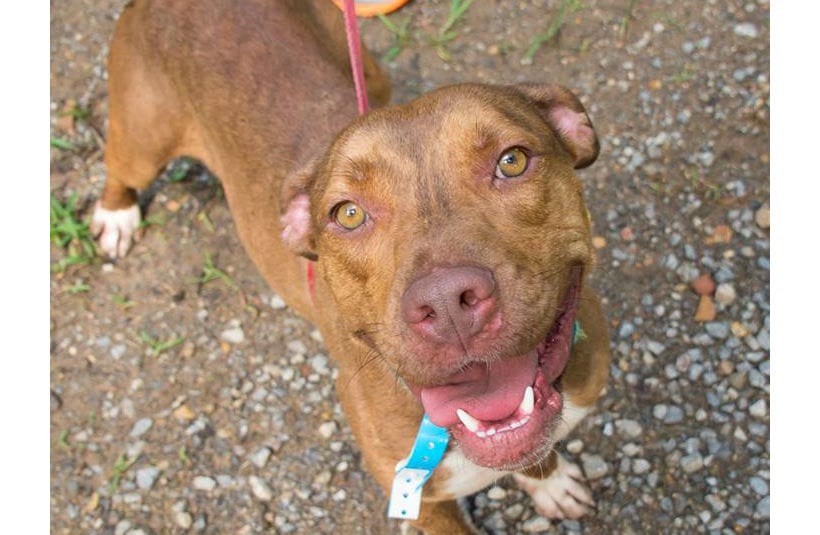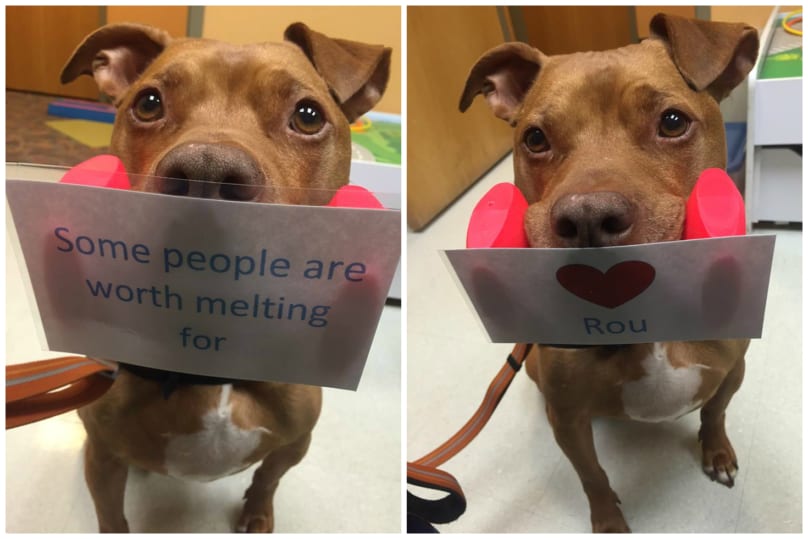A dog walks into a shelter. Shelter staff see the dog’s blocky head and muscular body and say: That’s a Pit Bull.
Except that designation is often wrong, according to a new study published in The Veterinary Journal.
As many as a third of 120 dogs who were part of this study were called Pit Bulls, even though DNA tests showed they weren’t anything of the sort.
And some 20 percent of the dogs found themselves in the opposite situation — not identified as pits by shelter staff, while DNA tests showed them to belong to this cohort of blocky-headed dogs who are adorable, but face terrible discrimination.
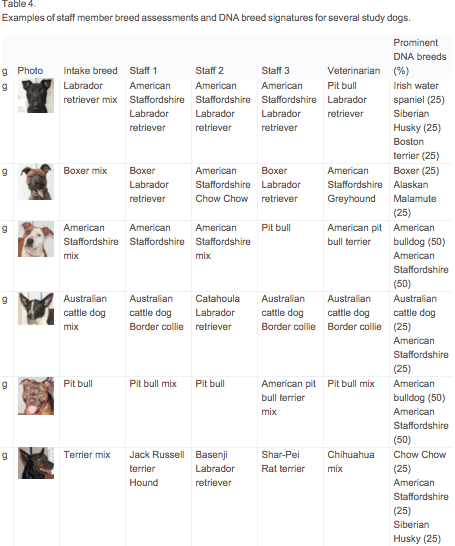

Indeed, because calling a dog a Pit Bull can lead to such terrible results — we’ll get more into those below — and the practice itself is so inaccurate, this study’s lead researcher says it may be time to scrap breed labeling of shelter dogs altogether.
“I don’t think it’s important or useful to label breeds when the actual pedigrees are unknown,” Julie Levy, a veterinarian and professor of shelter medicine at the University of Florida, told BarkPost.
“For Pit Bull-type dogs, the consequences can be profound if their chances of adoption or finding housing are decreased by a label that might not even be correct.”
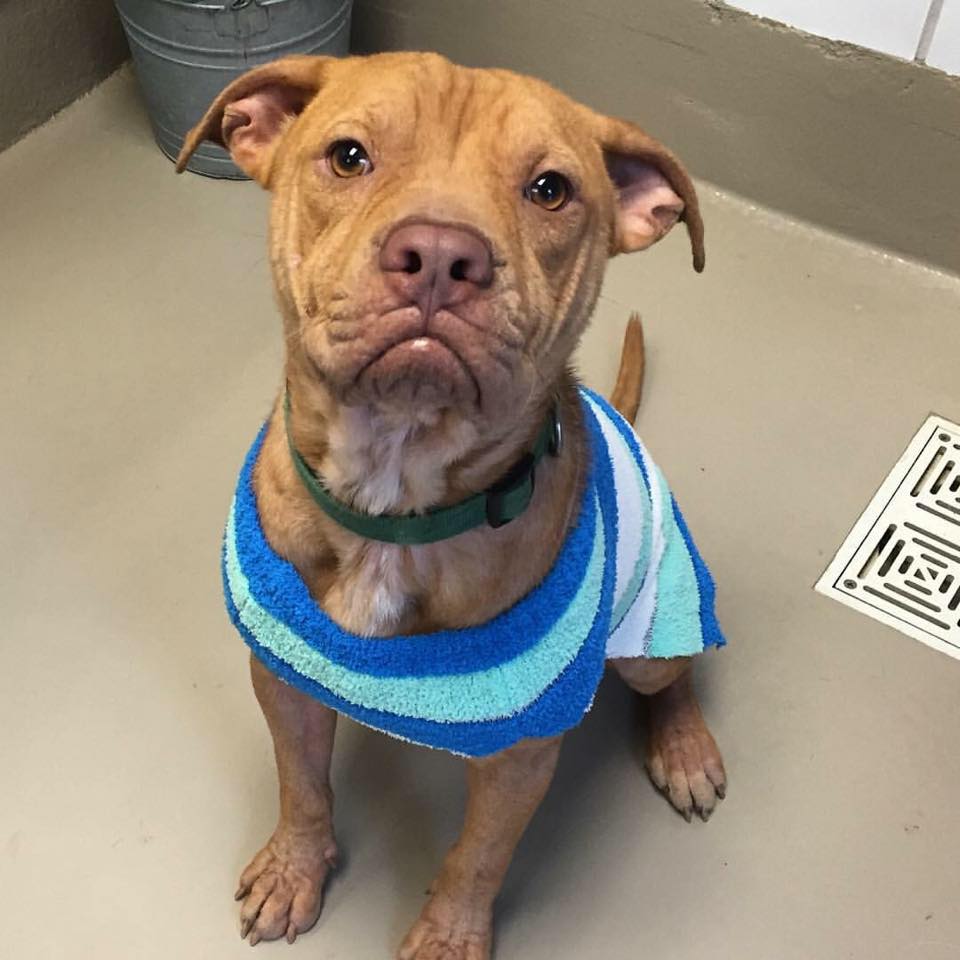

For this study, 16 experienced shelter workers — including four veterinarians — were asked to visually identify the breeds of 120 dogs. These assessments were then compared with each other, and against DNA profiles for each dog.
And oh boy, were they off a lot of the time.
So-called “genetic” Pit Bulls were only correctly identified by the shelter staff 33 to 75 percent of the time.
Meanwhile, up to nearly half the time, shelter staff labeled dogs as Pit Bulls when they lacked any DNA evidence substantiating that designation.
[bp_related_article]
Slightly confusing (but necessary) background information: There’s no such breed as the “Pit Bull” – so no way of DNA testing for Pit Bulls specifically.
Rather, the study looked for dogs with what the researchers called “Pit Bull heritage” — meaning, DNA tests showed them to be at least 12.5 percent American Staffordshire Terrier or Staffordshire Bull Terrier.
There is also a pedigreed American Pit Bull Terrier, which is ordinarily considered a “Pit Bull” — but there is no DNA test available currently to test for APBTs. However, according to Levy, they’re genetically close enough to American Staffordshire Terriers that they likely still tested positive for being Pits — and, Levy said, “dogs with this genetic makeup are still often considered to be ‘Pit Bulls,’ both informally and in the eyes of the law.”
If this all makes it sound like even at their most scientifically sound these sorts of breed categorizations are perhaps the teeniest bit arbitrary, read on…


Here’s why all this matters: in hundreds of cities and counties across the country, dogs can be taken away from their families by law enforcement if they are suspected of being a banned breed. The dogs may then be killed, without having done anything wrong.
(Such breed-specific legislation, or BSL, is roundly condemned by groups like the American Veterinary Medical Association, the American Bar Association and even the White House, as being awful for families, for animals, and for the rule of law, while being very expensive to enforce and providing no increase in public safety.)
Some shelters won’t even adopt out dogs identified as Pits. And then lots of landlords won’t allow Pits in their rentals either, which can make it punishingly difficult for families with Pits to find a place to live.
Even some well-meaning people will see the Pit Bull label and make all kinds of negative, untrue assumptions about what that dog’s personality is like. The assumptions may cause people to be afraid to adopt that dog, which in turn leads to Pit Bulls being disproportionately euthanized — killed — in shelters.
According to a statement by Levy:
“Identification of dogs as Pit Bulls can trigger an array of negative consequences, from the loss of housing, to being seized by animal control, to the taking of the dog’s life. In the high-stakes world of animal shelters, a dog’s life might depend on a potential adopter’s momentary glimpse and assumptions about its suitability as a pet. If the shelter staff has labeled the dog as a pit bull, its chances for adoption automatically go down in many shelters.”
Levy told BarkPost she’s pleased to see that some shelters are moving away from assigning breed labels to doggies whose parentage is a bit of a mystery. The shelters may say that a given dog looks like a Collie, or a Lab, or a Pit Bull, but will not attach definitive labels (“This is a Collie”) in the absence of more certain knowledge.
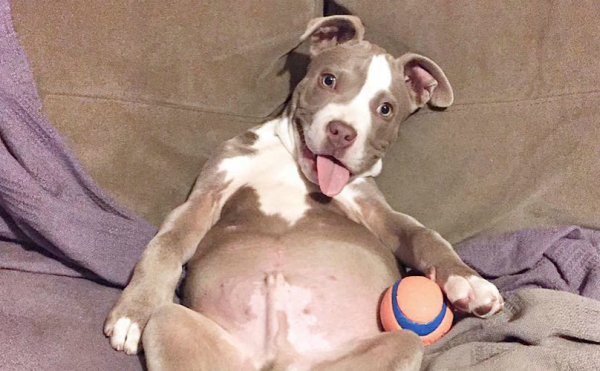

Instead, these shelters are giving potential adopters other kinds of information that will help folks pick the right pet for their household — like size, color, sex, and personality, “which probably serve potential adopters better when they are trying to adopt a dog that meshes well with their lifestyle,” Levy said.
Here’s an excellent essay about how and why more shelters can pursue that path.
Finally, a bit of an ironic tale that shows how much the Pit Bull label is in the eye of the beholder.
About a year ago, my husband and I were looking for a house to rent. We visited one place, where the real estate agent asked to see a picture of our dog.
“Oh,” she said, looking at a photo of our sweet Murray — that dog you see resting his little head on a pillow, above. “You can’t rent here. This is a Pit Bull.”
Well, sometimes that head of his does seem blocky. Other times, not so much, to such an extent that one notoriously Pit Bull-hating Internet personality once saw Murray’s photo and emailed me gleefully to say it’s clear that my dog isn’t a pit.


For the record, when we adopted Murray — going on six years ago — he was listed on Petfinder as a Border Collie mix. Which sounded fun to us!
This was before I knew how arbitrary shelter breed labeling can be, or before I’d become aware that breed traits you might expect in a purebred dog may not be exhibited in mutts (a Greyhound mix may not be a very fast runner, for example).
And, along those lines, our dog has never herded a thing. Not a cat, nor a squirrel, not a person, and definitely not a sheep.
Now we are pretty sure that whatever Murray is — perhaps part Pit Bull, or Pointer, or who knows what — he, at the very least, does not act like anything like you’d expect from a Border Collie.
We still think he’s pretty great.
My husband and I are very fortunate, because we did not need to rent this particular house. We could hold out for a much better home for us, with landlords who don’t have breed restrictions — in fact, they have Pit Bulls themselves.
But still: Is Murray a Pit Bull? We’ve never had him genetic tested, so you tell me. Or, rather, don’t — because you’ll probably be wrong.
Featured image via Noelani G./Instagram



